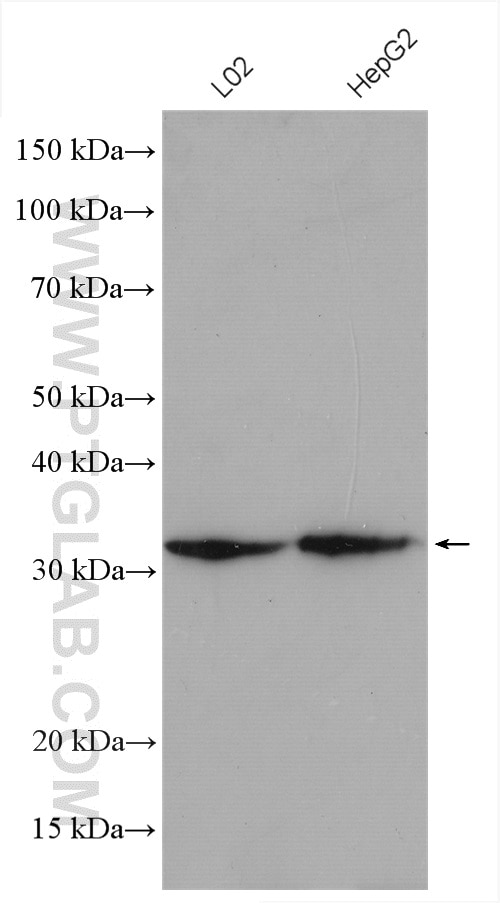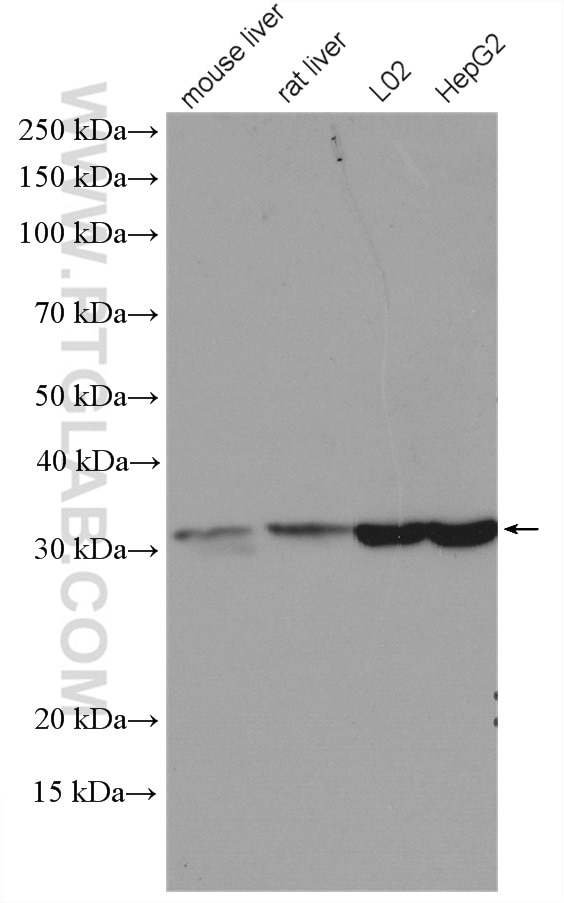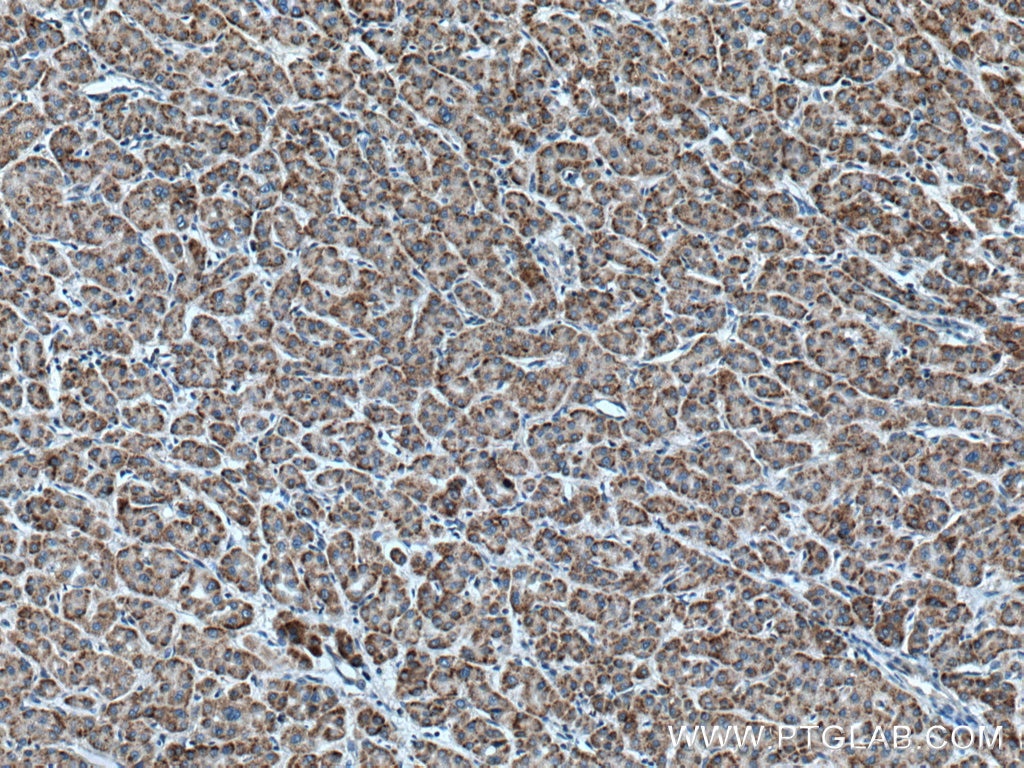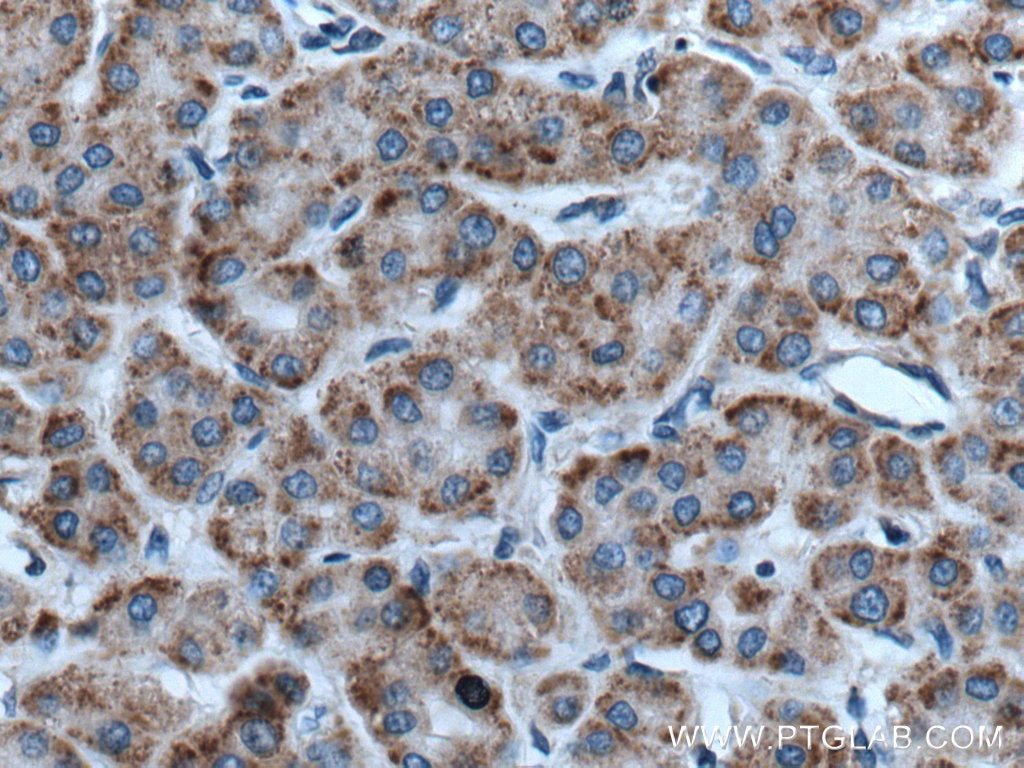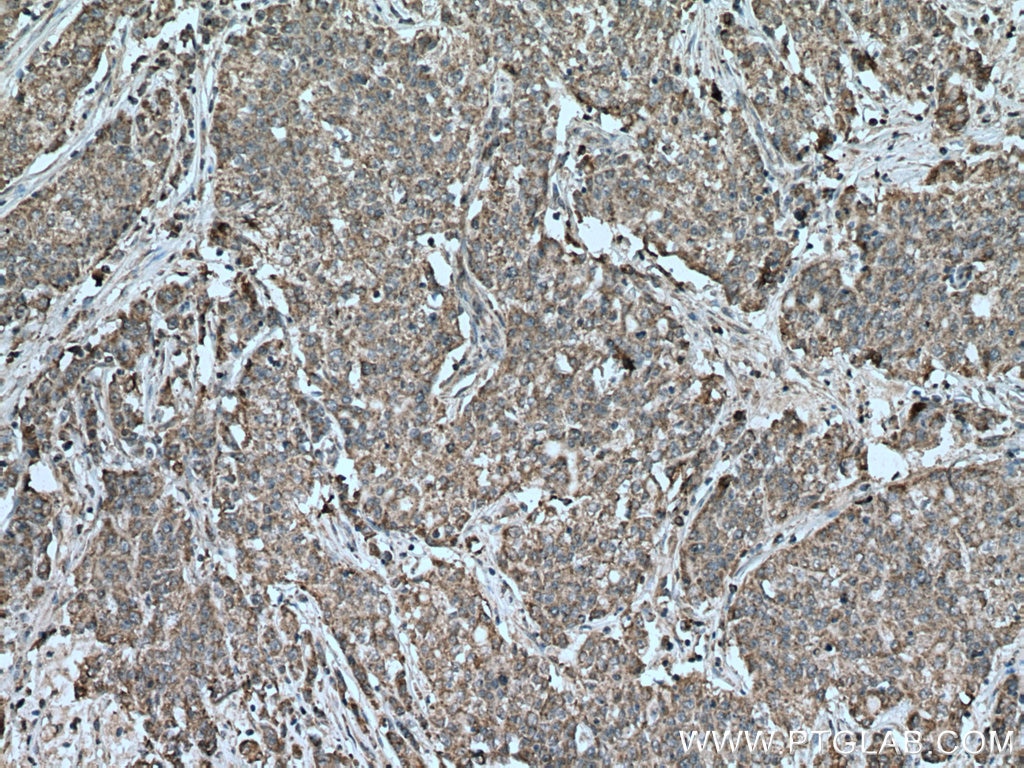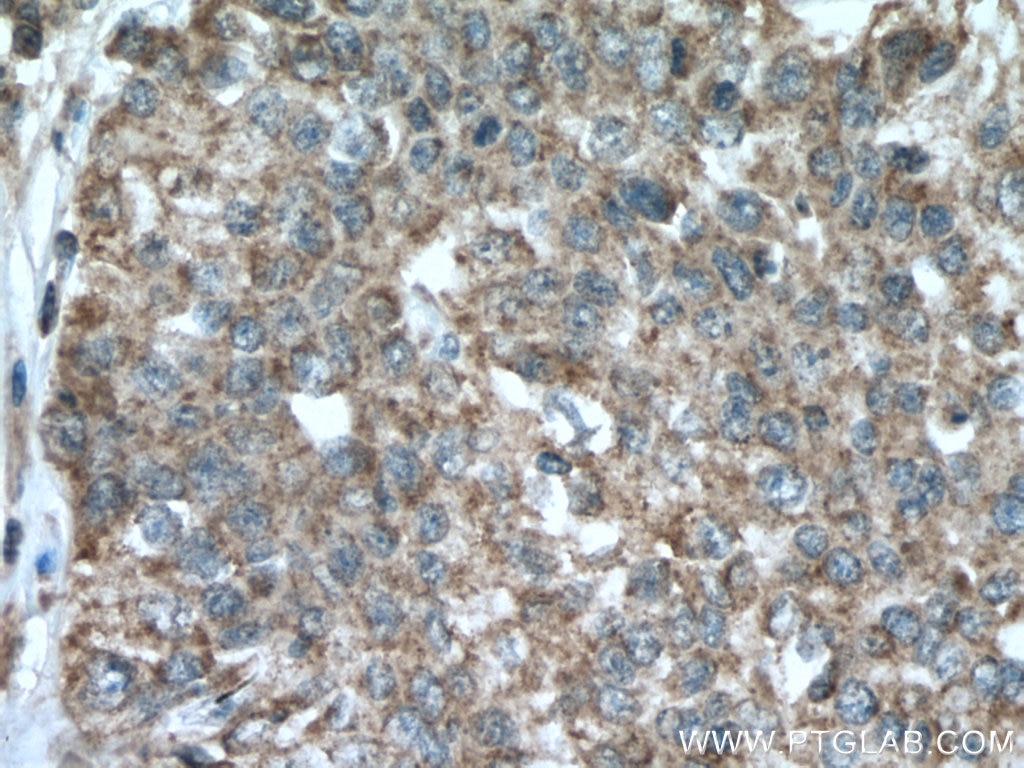- Featured Product
- KD/KO Validated
RACK1; GNB2L1 Polyklonaler Antikörper
RACK1; GNB2L1 Polyklonal Antikörper für IHC, WB, ELISA
Wirt / Isotyp
Kaninchen / IgG
Getestete Reaktivität
human, Maus, Ratte und mehr (2)
Anwendung
WB, RIP, IP, IHC, IF, CoIP, ELISA
Konjugation
Unkonjugiert
Kat-Nr. : 27592-1-AP
Synonyme
Galerie der Validierungsdaten
Geprüfte Anwendungen
| Erfolgreiche Detektion in WB | Mauslebergewebe, HepG2-Zellen, L02-Zellen, Rattenlebergewebe |
| Erfolgreiche Detektion in IHC | humanes Leberkarzinomgewebe, humanes Magenkrebsgewebe Hinweis: Antigendemaskierung mit TE-Puffer pH 9,0 empfohlen. (*) Wahlweise kann die Antigendemaskierung auch mit Citratpuffer pH 6,0 erfolgen. |
Empfohlene Verdünnung
| Anwendung | Verdünnung |
|---|---|
| Western Blot (WB) | WB : 1:500-1:3000 |
| Immunhistochemie (IHC) | IHC : 1:400-1:1600 |
| It is recommended that this reagent should be titrated in each testing system to obtain optimal results. | |
| Sample-dependent, check data in validation data gallery | |
Veröffentlichte Anwendungen
| KD/KO | See 2 publications below |
| WB | See 11 publications below |
| IF | See 1 publications below |
| IP | See 3 publications below |
| CoIP | See 2 publications below |
| RIP | See 1 publications below |
Produktinformation
27592-1-AP bindet in WB, RIP, IP, IHC, IF, CoIP, ELISA RACK1; GNB2L1 und zeigt Reaktivität mit human, Maus, Ratten
| Getestete Reaktivität | human, Maus, Ratte |
| In Publikationen genannte Reaktivität | human, Affe, Hausschwein, Maus |
| Wirt / Isotyp | Kaninchen / IgG |
| Klonalität | Polyklonal |
| Typ | Antikörper |
| Immunogen | RACK1; GNB2L1 fusion protein Ag26708 |
| Vollständiger Name | guanine nucleotide binding protein (G protein), beta polypeptide 2-like 1 |
| Berechnetes Molekulargewicht | 36 kDa |
| Beobachtetes Molekulargewicht | 31 kDa |
| GenBank-Zugangsnummer | BC019093 |
| Gene symbol | GNB2L1 |
| Gene ID (NCBI) | 10399 |
| Konjugation | Unkonjugiert |
| Form | Liquid |
| Reinigungsmethode | Antigen-Affinitätsreinigung |
| Lagerungspuffer | PBS mit 0.02% Natriumazid und 50% Glycerin pH 7.3. |
| Lagerungsbedingungen | Bei -20°C lagern. Nach dem Versand ein Jahr lang stabil Aliquotieren ist bei -20oC Lagerung nicht notwendig. 20ul Größen enthalten 0,1% BSA. |
Hintergrundinformationen
Members of the protein kinase C (PKC) family play a key regulatory role in a variety of cellular functions, including cell growth and differentiation, gene expression, hormone secretion and membrane function. RACK1 (receptor for activated protein kinase C 1), encoded by GNB2L1 gene, is a 317 amino acid guanine nucleotide-binding protein subunit beta-2-like 1 protein which is involved in the recruitment, assembly and/or regulation of a variety of signaling molecules, it contains 7 WD-repeats and is implicated in various protein interaction activities. RACK1 is a component of the 40S ribosomal subunit involved in translational repression. Recent finding suggests that RACK1 may be a new promising diagnosis biomarker and therapeutic target for non-small-cell lung cancer (NSCLC).
Protokolle
| Produktspezifische Protokolle | |
|---|---|
| WB protocol for RACK1; GNB2L1 antibody 27592-1-AP | Protokoll herunterladen |
| IHC protocol for RACK1; GNB2L1 antibody 27592-1-AP | Protokoll herunterladen |
| Standard-Protokolle | |
|---|---|
| Klicken Sie hier, um unsere Standardprotokolle anzuzeigen |
Publikationen
| Species | Application | Title |
|---|---|---|
J Clin Invest CAP2 promotes gastric cancer metastasis by mediating the interaction between tumor cells and tumor-associated macrophages | ||
J Virol The matrix protein of respiratory syncytial virus suppresses interferon signaling via RACK1 association | ||
Virology RACK1 promotes porcine reproductive and respiratory syndrome virus infection in Marc-145 cells through ERK1/2 activation
| ||
Vet Microbiol Small molecule screening identified cepharanthine as an inhibitor of porcine reproductive and respiratory syndrome virus infection in vitro by suppressing integrins/ILK/RACK1/PKCα/NF-κB signalling axis. | ||
Vet Microbiol Inhibition of porcine reproductive and respiratory syndrome virus by PKC inhibitor dequalinium chloride in vitro. |
